第2章
From seven on the morning of Tuesday until after midnight of Wednesday the fleet bombarded Fort McHenry at long range; occasionally the gunners in the fort fired a useless shot at the ships. But at midnight word was brought to Cockburn that the land attack on the North Point road to the east of the city had failed. Therefore, unless the fleet could take Fort McHenry on the west, retreat was inevitable.
Taking advantage of the darkness, a little after midnight sixteen British frigates, with bomb-ketches and barges, moved up within close range. At one o'clock they suddenly opened a tremendous and destructive fire upon the fort. Five hundred bombs fell within the ramparts; many more burst over them.
The crisis of the fight came when, in the darkness, a rocket ship and five barges attempted to pass up the north channel to the city. They were not perceived until the British, thinking themselves safe and the rusesuccessful, gave a derisive cheer at the fort under whose guns they had passed. In avoiding Fort McHenry, however, they had fallen under the guns of the fort at the Lazaretto, on the opposite side of the channel. This fort, opening fire, so crippled the daring vessels that some of them had to be towed out in their hasty retreat.
From midnight till morning Key could know nothing of the fortunes of the fight. At such close quarters a dense smoke enveloped both the ships and the fort, and added to the blackness of the night.
After the failure to ascend the north branch of the Patapsco, the firing slackened. Now and then a sullen and spiteful gun shot its flame from the side of a British vessel. Key, pacing the deck of the cartel ship, to which he had been transferred, could not guess the cause of this. The slackened fire might mean the success of the land attack, in which case it would not have been necessary to waste any more powder on the fort. Again, it might be that the infernal rain of shells had dismantled the little fort itself, and the enemy was only keeping up a precautionary fire until daylight enabled him to take possession.
The long hours were nearly unbearable. Key had seen the fate of Washington, and anticipated the fate of Baltimore.
At seven the suspense was unrelaxed. The firing from the fleet ceased. The large ships loomed indistinct and silent in the mist. To the west lay the silent fort, the white vapor heavy upon it. With eager eyes Key watched the distant shore, till in a rift over the fort he dimly discerned the flag still proudly defiant. In that supreme moment was written "The Star-Spangled Banner."The British ships slowly dropped down to North Point. Dr. Beanes went home to Upper Marlborough, very thankful as he saw the yard-arm of the Surprise melt out of sight, unburdened.
Of all national airs, it breathes the purest patriotism. Those of England, Russia, and Austria are based upon a sentimental loyalty long outgrown by this agrarian and practical age. The "Marseillaise" is a stirring call to arms, and upholds only the worst--the passionate military-- side of a nation's character. "The Star-Spangled Banner," while it is animated, patriotic, defiant, neither cringes nor boasts; it is as national inits spirit as it is adequate in the expression of that spirit. Believing, then, that Key's poem will be the national air of succeeding generations of Americans, the facsimile of the original draft is here reproduced by the kindness of Mrs. Edward Shippen, a granddaughter of that Judge Nicholson who took the first copy of the poem to the "American" office, and had it set up in broad-sheet form by Samuel Sands, a printer's apprentice of twelve. He was alone in the office, all the men having gone to the defense of the city. It is written in Key's hand. The changes made in drafting the copy will be seen at once, the principal one being that Key started to write "They have washed out in blood their foul footsteps' pollution," and changed it for "Their blood has washed out their foul footsteps' pollution." In the second stanza, also, the dash after "'T is the star-spangled banner" makes the change more abrupt, the line more spirited, and the burst of feeling more intense, than the usual semicolon. The other variations are unimportant. Some of them were made in 1840, when Key wrote out several copies for his friends.